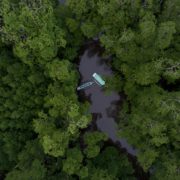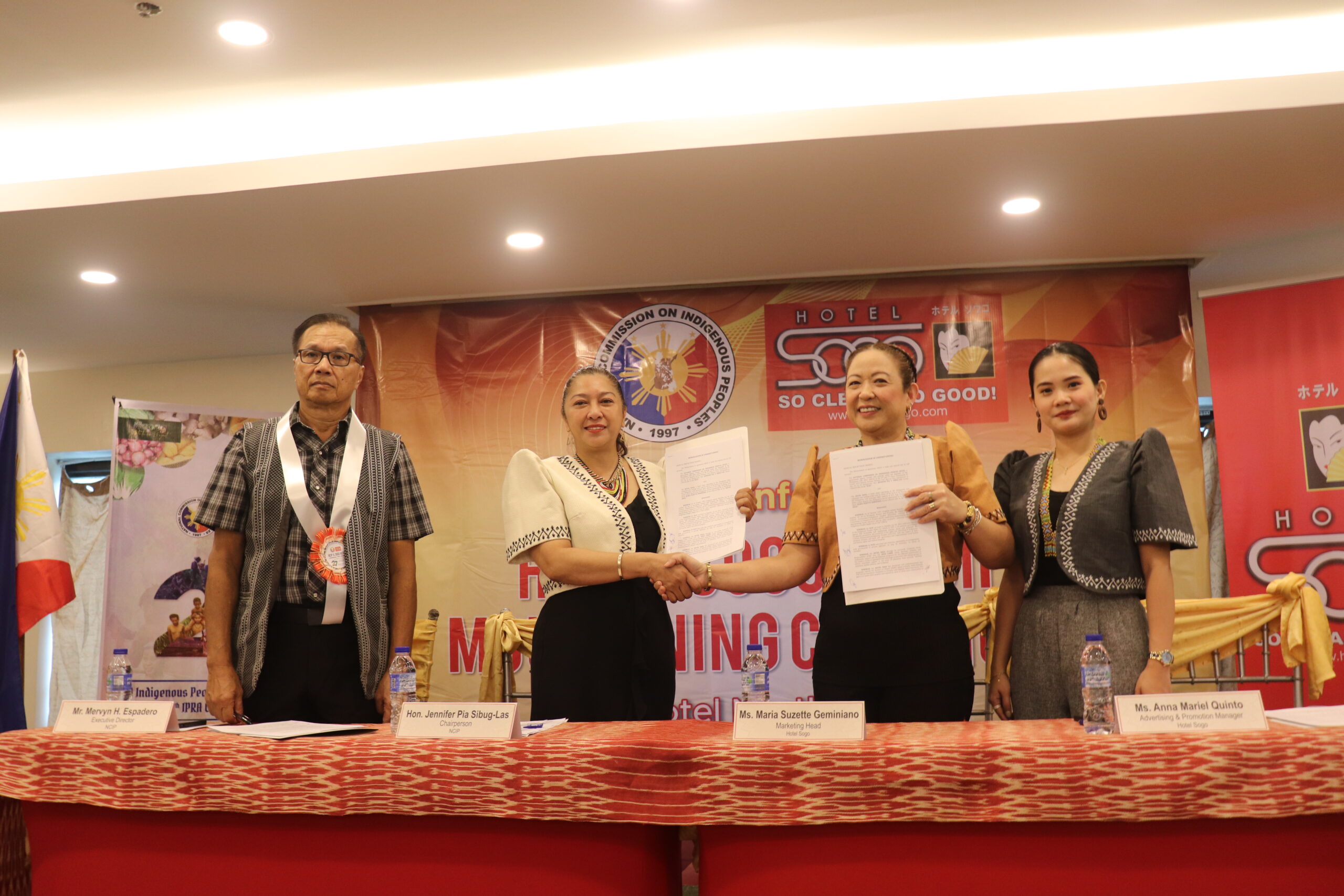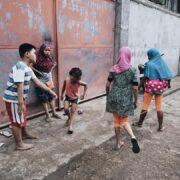Pilipinas Shell Foundation, Inc. gives back to the community
As one of the leading destinations in the Philippines, Palawan indeed is a treasure in its full glory. With its breathtaking spots and rich cultural history, having the chance to grace the magnificent island location would be an experience straight out of a dream book. Aside from the beautiful landscapes it commonly boasts, the island particularly its capital – Puerto Princesa teems with the abundance of its mineral resources particularly energy reserves. In fact, Shell Philippines Exploration B.V. (SPEX) on behalf of joint venture partners Chevron Malampaya LLC and the PNOC Exploration Corporation established the Malampaya Deep Water Gas-to-Power project.
Such is one of the largest and most significant industrial endeavors in Philippine history. A joint undertaking of the Philippine national government and the private sector, the project is also spearheaded by the Philippine Department of Energy (DOE). Aside from the business aspect of the said project, it is also adamant to make a societal impact in transforming and empowering communities.
Tribes still thrive in Puerto Princesa
The culture of tribal leaders and chieftains is not lost among the Batak people of Sitio Calacuasan. In fact, according to them, Pilipinas Shell Foundation Incorporated (PSFI) has helped improve their lives making it more convenient for them to meet the demands of the changing paradigm. PSFI launched an Access to Energy (A2E) Projects in Palawan to provide renewable energy resources to the indigenous communities with five to ten years. Among the micro-grid projects is the said Batak village wherein they supplied tools necessary to provide electricity to the people.
The advocacy project that has won local support is the ISIP (Integrated Support for Indigenous Peoples). This program has immensely improved lives, particularly of the Batak ethnic group in Sitio Kalakwasan. Tatak Batak Association President Erlinda Delos Angeles shared how grateful the entire community is to PSFI. The said institution, according to the community, helped greatly in the basket weaving livelihood.
“Tulad po ng ilaw na binigay nila sa amin. Malaking tulong na po iyon sa amin, katulad po ng handicraft na ginagawa namin. Dati po di kami makagawa pag gabi kasi nga po walang ilaw. Pero ngayon nakakagawa kami. Pati ‘yung mga anak naming nag-aaral nakakagawa sila ng kanilang mga assignments dahil sa ilaw,” Delos Angeles said. (Just like the bulbs and lighting they provided. It was a great help to us, to the hand-crafted baskets we are producing. Before, we are unable to produce baskets at night because we don’t have light bulbs. Now, we are able to do so. Even our children can study at night, they are able to do their homework because of the light they provided), Delos Angeles said.
The Batak people also recognized the downside of the changing times. The continuous development of their community could possibly pose a threat since it can completely obliterate their traditions and practices. However, the elders of the community do not perceive it that way. Katutubong Batak ng Tanabag Producers Cooperative President Ernesto Dagsalio is optimistic that their culture would continue to thrive even to the next generation.
“Tungkol sa kultura ‘di mawawala yan. Bagamat kami ay bibiyahe na ‘yung mga matatanda, nandidiyan pa rin ‘yan. Ang aming mga kaalaman na sinundan namin sa mga ninuno namin andito pa rin ‘yun sa amin. Pati sa mga kabataan namin. Di po yun mawawala sa amin,” Dagsalio said. (Our culture will never cease to exist. Even if we (elders) will journey to the afterlife it will remain there. The traditions we emulated from ancestors remain with us and to our children. It will never be lost), Dagsalio said.
Environmental preservation and sustainability
PSFI also prioritizes environmental sustainability in its projects in Puerto Princesa. One of which is the TANDIKAN (Turismo at Negosyo Dulot ng Ingat Kalikasan) which aims to mobilize community involvement, create alternative income opportunities for locals, and protect and conserve Palawan’s biodiversity. The TANDIKAN community-based enterprise development and biodiversity program include support to UNESCO World Heritage Sites, Tubbataha Reefs and Natural Park (TRNP), and the Puerto Princesa Subterranean River National Park (PPSRNP).
One of the beneficiaries of the said TANDIKAN project is the Maoyon River Cruise. In the said cruise, visitors are able to visit the century-old Dao tree that is believed to be a significant fixture in the community. According to the stories, a great flood once graced the region in 1972 and completely washed away houses and properties. During the tragedy, a family got caught in its branches saving a seven-year-old child for an entire day. The locals said that if it were not for the tree, the poor boy might have not survived the said flood.
 The locals decided that the Dao tree might be a good tourist destination in 2011. The trip along the lovely river of Barangay Maoyon gives the visitors a glimpse of the abundant freshwater life and lush greeneries. The ecotourism project was established to promote conservation while generating income. The PSFI supported the said project in 2014, conducting seminars among the local community tour guides. Former Maoyon River Cruise Association President Chita Castro expressed her gratitude to the PSFI, claiming that the institution saved their livelihood from sinking through their training.
The locals decided that the Dao tree might be a good tourist destination in 2011. The trip along the lovely river of Barangay Maoyon gives the visitors a glimpse of the abundant freshwater life and lush greeneries. The ecotourism project was established to promote conservation while generating income. The PSFI supported the said project in 2014, conducting seminars among the local community tour guides. Former Maoyon River Cruise Association President Chita Castro expressed her gratitude to the PSFI, claiming that the institution saved their livelihood from sinking through their training.
“Dati po di po kami marunong sumalita, ngayon po, ay medyo na rin. Malaki pong pagbabago talaga. Kami pong mga community tour guide ‘yung asosyasyon po namin ay nagkakaisa,” Castro said. (Before, we were unable to speak in front of people, but now we are slightly able to do so. There is a big improvement among. Us the community tour guides, our association are now united,) Castro said.
Both programs led by PSFI harnessed the potential of target communities – with the help of relevant government units and civil society organizations – to better utilize resources and commit to positive ideas with far-reaching impact. Viewing Shell as a key partner in addressing the larger, systemic challenges that loomed before the community, residents set the stage for community-building.
However, PSFI did not implement the projects without challenges along the way. From the outset, it seemed like a tall order. Shifting indigenous people and locals’ mindset from exploitative (since they needed to earn and ensure their survival, but at the expense of the environment) to participative (becoming partners in conservation) did not happen overnight. It took calculated steps, beginning with TANDIKAN’s recognition that degradation of Palawan’s environment was caused mainly by a swelling population dealing with unemployment. Sabang Mangrove Paddle Boat Tour Guide Association President Celestino “Tinoy” Santander also shared how the feat was not easy among the locals.
“Doon po sa mga dating nag-uuling hindi po madaling tanggapin pero kapag nasusuportahan yung mga tao ‘yung mga iba’t ibang livelihood kusang tumitigil na po yan. Tulad po nung iba sa aming galing sa ganung trabaho, noong napromote na po ito sa tulong ng Shell Foundation, nagkaroon na ng income ng kita na sapat sa kanilang pamilya. Mas gusto na nila dito kasi siyempre mas malinis dito. Sa pag-uuling talaga may usok pa. Kung makita niyo po ‘yung mga nag-uuling ‘yung edad niyang trenta dalawang linggo lang siya maexpose sa usok mukha na siyang singkwenta,” Santander said.
“To those whose livelihood revolves around making coal, the project was not easy to accept, but if it gets enough support it needs, people would automatically refrain from doing such. Just like those among us whose job is to make coal, when this was promoted by Shell Foundation, they received an income good enough to sustain a family. They like this job more since it is a clean job. In making coal there is smoke. If you see someone who makes coal, if he is aged thirty, two weeks of exposure to smoke would make him look fifty,” Santander said.
PSFI met with the management of the Puerto Princesa Subterranean National Park, one of the protected areas in the Philippines with surrounding communities reliant on the forest products in the area for both their livelihood and personal consumption. PSFI was able to identify barangays that needed conservation interventions based on environmental issues monitored. It then prioritized those with the highest and most alarming issues.
While the Philippines is largely dependent on imported oil and coal for most of its energy needs, the continued surge in the demand for power underscores the importance of tapping clean, indigenous energy sources to help fulfill the growing energy requirement. The truth is that there is clean energy in the Philippines and it is already providing up to 30 percent of the country’s power needs.
Since 2001, natural gas drawn from beneath the waters of the West Philippine Sea under the Malampaya Deep Water Gas-to-Power project fuels five power station plants with a total generating capacity of 3,200 megawatts. The benefits of the project, however, extend beyond natural gas. Malampaya enables the country to reduce its oil imports, ensure a more stable supply of energy, a cleaner source of power and help various communities develop sustainable social and environmental programs.
In a society that is heavily dependent on the self, it is a refreshing view for businesses to take on humanitarian and environmental ventures. As they continue to help improve the lives in these communities, these communities, in turn, paid the good deed forward as it so generously did to their visitors. Such is not just a promotion of a sustainable eco-tourism, but also a propagation of a culture where giving back is almost second nature.









